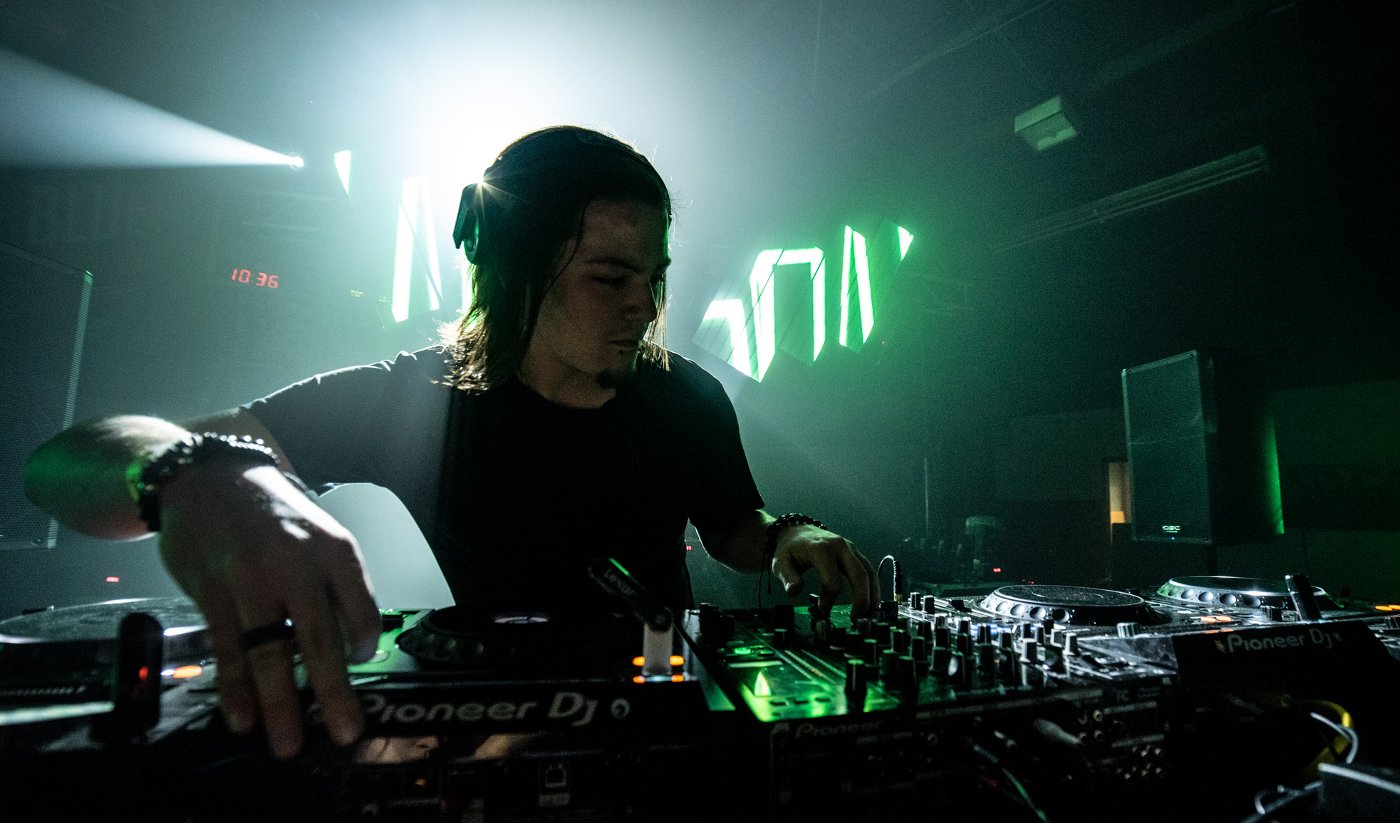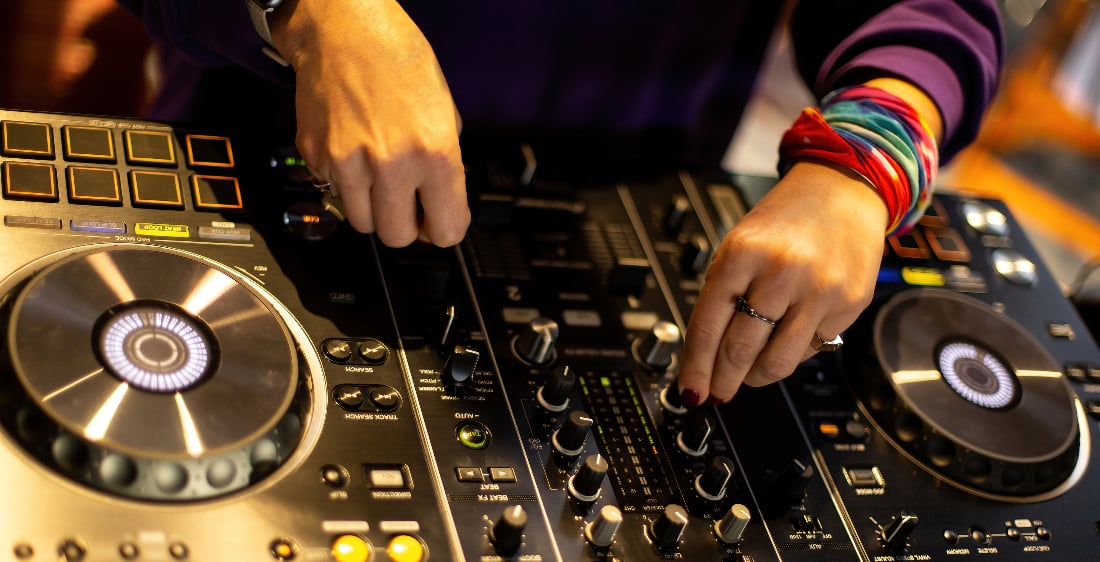What is a DJ
As it has been for a century, a DJ (aka disc jockey) is someone who plays music for an audience, whether it’s on the radio or in person. The role has evolved over the years, making generational leaps and bounds as technological advances give us more access to equipment–and music–than ever before.
When a DJ performs live, they spin sounds at clubs, bars, festivals, parties, and other events. They use specialized equipment, such as turntables, CDJs (CD players for DJs), digital controllers, or software, to mix and blend music tracks seamlessly. This involves beatmatching, crossfading, and applying various effects to create a continuous and enjoyable music experience for the audience.
They carefully build playlists or sets, choosing songs from various genres and eras to suit the occasion and the preferences of the crowd. They have a deep knowledge of music and are skilled at reading the energy of the audience to keep them engaged and entertained.
DJs play a crucial role in the music industry as tastemakers, entertainers, and influencers. They bridge the gap between artists and audiences, introducing people to new music and creating memorable experiences through their performances. DJs have evolved with technology, transitioning from vinyl records to digital formats, and continue to shape the landscape of modern music and entertainment.

What does a DJ do
A DJ is a musical curator and performer who selects, mixes, and plays music to an audience, over the airwaves, through streaming, or at live events. They must adapt their skills to various settings, from clubs and festivals to private events and digital platforms, and play a crucial role in shaping the music scene by introducing new sounds and styles to their audiences.
While today’s technology makes it easier than ever for you to bring your sound to people, you’ll still have to put in a lot of work. You’ll choose songs or tracks from different genres and eras, create seamless mixes, and read a crowd–knowing when to bring them up or to chill them out.
DJs often use effects and techniques to enhance their mixes, manipulating and reimagining existing songs. This can include scratching (manually manipulating the record or digital track), looping (repeating a section of a song), and applying various audio effects for creative flair.
You may produce your own music as a DJ, or feature up-and-coming artists as part of a promotional effort. But first and most importantly, you’re there to entertain the crowd no matter the environment. Using traditional methods, as well as new techniques and equipment, you create a seamless fusion of the old and the new.
How do you become a DJ
You’ll need to become somewhat of a music historian, learning as much as you can about different genres and styles of music. Even if you’re making your own music, finding the right sample, hook, or loop can make all the difference. From there, start learning and acquiring DJ equipment–start with free versions of software and eventually start building your DJ setup.
Then it’s just practice, practice, and more practice until you’ve made a few tracks or even set lists. At the start, don’t try to make everything perfect, but work on beatmatching, blending, and creating smooth transitions between tracks. As you build your skillset, you can also build your music library (digital or otherwise).
Part of the learning process is studying other DJs to see their techniques, styles, and even how they project their personality in their music and on stage. Then go about working on your own style, start having others listen to your sets, and really listen to their feedback. Once you’ve created several tracks, start releasing the music on social media.
This will help build a following and create a portfolio so you can share your mixes, engage with your audience, and promote yourself. Start by DJing at smaller, local events and venues to gain experience. As you improve and build a reputation, you can pursue larger gigs and events. And always be aware of copyright laws and licensing when using and sharing music in your DJ sets. Ensure you have the necessary permissions or licenses if you plan to release or sell your mixes.









